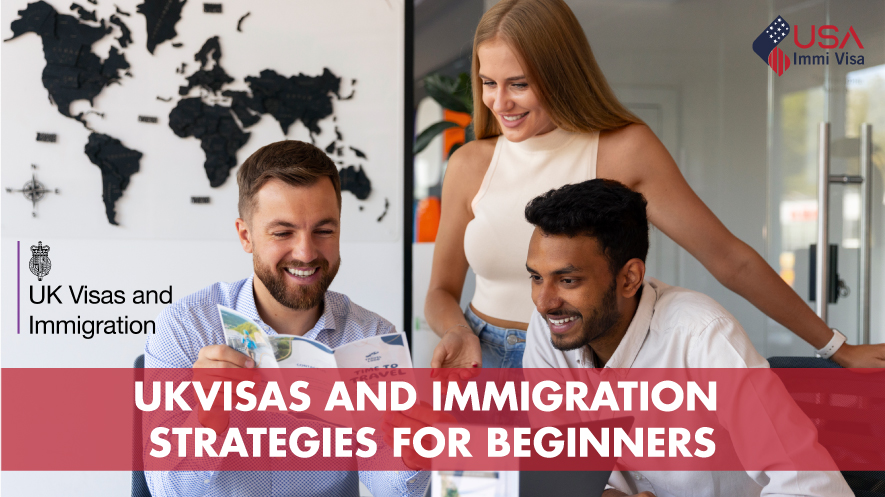UKVisas and Immigration (UKVI) decides who can visit, study, work and settle in the United Kingdom. The agency provides a world-class customer service and makes important decisions that affect people’s lives.
The number of non-EU workers granted employer-sponsored visas dropped sharply after the financial crisis, but it has recovered since. Some of these migrants are on short work-related visits and may not be seeking settlement in the UK.
1. Find a Sponsor
A UKVISAS AND Immigration or work permit is required for most non-UK workers. There are many routes for a work visa to the UK but most require sponsorship from a licensed employer. Some visa categories also have additional requirements such as a criminal record check, English language ability, or evidence of access to maintenance funds.
The Register of Licensed Sponsors is a publicly available list of employers that have been granted a visa sponsorship licence. The List can be searched by employer name, location and visa route. It is a great resource to use when looking for a work visa sponsor in the UK.
To become a licensed sponsor, companies must undergo a rigorous application process with the Home Office to prove they are genuine and capable of managing sponsored workers. If approved, the company will be assigned a sponsorship license rating and given permission to assign Certificates of Sponsorship to their employees. This licence remains valid for as long as the company maintains compliance with the UK visas and immigration laws.
Once a company has a sponsorship licence, they can offer jobs to non-UK workers. Each candidate will be given a unique reference number called a Certificate of Sponsorship (CoS). The CoS will need to be attached to a visa application for entry or residence in the UK.
DavidsonMorris is an immigration specialist that can help with finding a sponsor and navigating the work visa sponsorship system in the UK. We have expertise across all visa types and can advise on the best routes for your circumstances.
The most popular work visa route is the Skilled Worker visa (previously Tier 2 Visa). There are a few other routes that allow for sponsorship, including the Global Talent visa for tech-savvy professionals and the Innovator Founder visa for entrepreneurs. All of these require endorsement by a sponsor licence holder. In most cases, the sponsor will need to have experience hiring non-UK workers or have previously applied for an endorsement to support their own employee. Typically, sponsors will guarantee the applicant’s maintenance funds for their first month in the role and the duration of their visa.

2. Apply for a Visitor’s Visa
There are several different UK visas available to people from all over the world. Each type has its purpose and is subject to various restrictions. As such, it’s important to choose the right one for your situation.
UK visitor visas are available to people who wish to visit friends and family, undertake a short course of study, or attend an event. They can also apply for a work visa if they need to engage in paid activity during their stay. To get a UK visitor visa, you’ll need to have the necessary supporting documents. These may include:
Depending on the type of UK visa you’re applying for, you might need to present additional documentation. For example, if you’re applying for a work visa, you might need to submit proof of salary and employer details. You’ll also need to provide a criminal record certificate, if applicable.
As a general rule, standard visit visas are limited to six months in duration. However, you can apply for a long-term visitor visa if you want to extend your stay in the UK. Other types of UKVISAS AND Immigration are available for students, those who want to start a business, and those seeking private medical treatment.
If you’re planning on traveling around the UK, you may need to obtain a visitor-in-transit visa. This is a specific type of visa that allows you to enter the country for up to 48 hours while waiting for your flight. To apply for this visa, you’ll need to show that you have the funds to support yourself during your stay and that you do not intend on staying in the UK permanently.
When you’re applying for a UKVISAS AND Immigration, it’s important to answer all questions honestly and to be as detailed as possible. This will help you make a strong case and increase your chances of success. In addition, you should bring all your application documents to your interview. If you’re unsure of what to do, seek advice from an experienced immigration lawyer. This will help you avoid any mistakes that could lead to delays or denials.
3. Apply for a Work Visa
UKVISAS AND Immigration are a crucial component of the country’s immigration system. They provide a way for non-EU citizens to engage in paid work, study and travel in the UK. With so many different visa types, it is essential to understand how they operate and the eligibility requirements for each. Selecting an inappropriate visa type or misunderstandng the criteria can lead to delays, wasted time and lost opportunities.
The UKVISAS AND Immigration are divided into several categories based on the type of employment and the length of stay. These include short-term work visas, Investor, Business Development and Talent visas. The most popular work visa route is the Skilled Worker visa (Tier 2 General), which allows individuals with middle to high-skilled jobs to live and work in the UK for several years. Those working on this visa are usually allowed to apply for settlement after five years.
If you are considering applying for a Skilled Worker visa, it is important to find a role that meets the required skill level and salary. Applicants must also have a valid sponsor licence, which is a reference number issued by the Home Office to an employer who has been granted permission to sponsor migrants under specific visa categories. The Sponsor Licence is valid for three years and can be renewed, but it must be used to sponsor workers within that period.
Applicants must also meet health, character, and English language requirements. Those who are not fluent in English must complete an approved English language test before they can apply for a visa. Those with criminal records may need to submit a police certificate before their application can be processed. Finally, all visa holders must have a medical to prove that they are in good health and able to work.
If you have all the required documentation, completing the visa process can be quick and straightforward. Once your visa is approved, you will receive a vignette that you can use to enter the UK and then will be instructed on where to go to collect your Biometric Residence Permit (BRP). After you have received your BRP, you will be able to work in the UK legally for the full duration of your visa.
4. Apply for Settlement
Visas allow people from different countries to enter, stay or work in the United Kingdom. They are either a stamped endorsement in an individual’s passport or a separate document issued by the Home Office.
Most visas are intended to be temporary. In the case of non-EU work migrants, most leave the country when their visas expire. For those granted a Youth Mobility Scheme (YMS) visa, the intention is for them to be employed in the UK for at least two years. As with the other long-term visa routes, this includes both highly and less skilled roles.
The majority of those who have been granted a Skilled Worker Visa are expected to remain in the country until they accrue five years of continuous residence in order to apply for settlement. This link between temporary migration and permanent immigration was explicitly broken under the 2010-2015 Coalition Government’s policy.
It is possible for some migrants to have gaps in their UK residency records due to circumstances such as serious illness, study, vocational training, pregnancy or compulsory military service. The length of time allowed for these gaps in UK residency is specified by the Home Office.
EU citizens wishing to stay on after their studies in the UK are required to either find a sponsor willing to grant them a work visa, or to qualify for one of the other long-term visa routes. As a result, student migration patterns suggest that many who are currently working in the UK on long-term visas are doing so temporarily.
The end of free movement in 2021 has reduced the number of EU workers in the UK, but this was anticipated and will have been partially offset by a rise in employer sponsorship of skilled workers from outside the EU. The impact on long-term migrant flows from the rest of the world is hard to predict, but Migration Observatory’s analysis suggests that employer sponsorship requirements could reduce these flows through higher costs and administrative obstacles.


